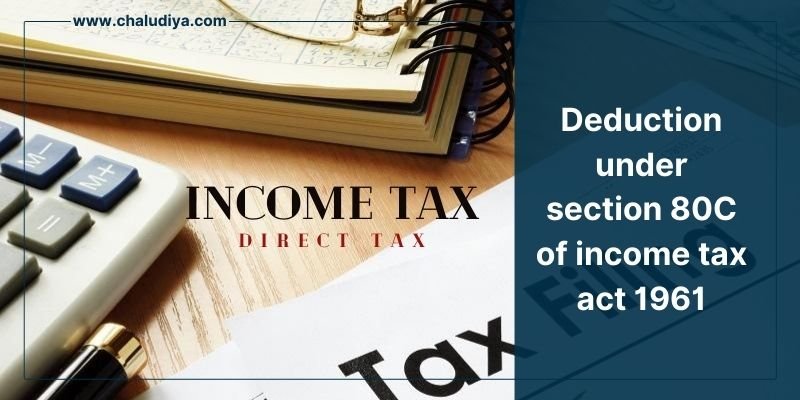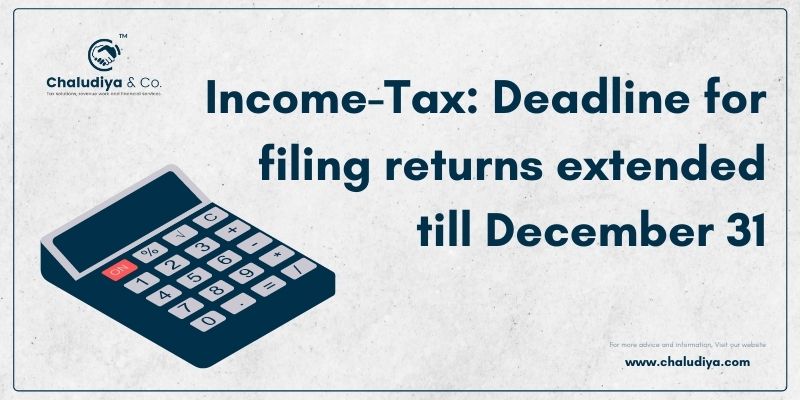- Have any questions?
- +91 76983 15026
- info@chaludiya.com
Check these legal documents before buying a property

Deduction under section 80C of income tax act 1961
June 18, 2020
GST registration-eligibility, documents, requirement, expert help, fees starting @1999/-
June 20, 2020Buying a property is everyone’s dream today. Due to urbanization and restructuring of the joint family system, everybody feels the need to to buy property in today’s times. At times it is seen that due to improper knowledge and lack of proper legal advice, a person who buys property is taken aback when he comes to know that the property bought is not the same as he was told he will get and/or is not a free property. In order to save people from all these frauds, an attempt has been made through this article to give you legal tips when buying any property.
Step 1 – Verification of title and ownership of the seller
As a first step it is advisable to verify the title of the seller. Documents, for a period of 30 years, if not more (and where documents are not available, for a minimum period of 12 years), must be examined. The seller may be requested to provide the following documents / information:
- Title documents of the property: Government order for grant, succession certificate, sale deed, gift deed, will, partition deed, lease deed etc., demonstrating the transfer of title over the years, ending in the vesting of property with the seller.
- Nature of title: Leasehold, freehold, or development right.
- Khata registered in the name of the seller.
- Information on pending or past litigation.
Step 2 Verify identity of the seller
The buyer should also ascertain the identity of the seller. The following requests may be noted for this:
- Residence status and nationality of the seller, in case of an individual
- Identification of all owners, in case of properties held jointly.
- Where the seller is a company, trust, partnership firm, society, etc. The constitution documents of the entity are necessary.
Step – 3 Conversion and land-use permissions
Several state laws restrict purchase of agricultural property by non-agriculturists. The buyer must examine the Master Plan and satisfy that the property is developed in accordance with the zoning plan – such as residential, commercial, industrial, public/semi-public, parks and open spaces, etc. Where actual use is different from the notified zoning, obtaining orders from the Town Planning Authority permitting change of land use, is mandatory.
Step – 4. Construction approvals
The buyer should also inspect the building plan / layout plan sanctioned by the local municipal authorities, along with approvals issued by government, statutory and regulatory authorities, for providing infrastructure facilities, water, sewage, electricity, environmental clearance, fire safety approval, etc.
Step – 5 Occupancy certificate
It is mandatory for the seller to obtain the occupancy certificate from the competent authority, prior to conveying the property. Without this, the buyer is exposed to penalty under the applicable building bye-laws, besides the risk of demolition of the property.
Step – 6 Payment of Tax
Non-payment of property taxes constitute a charge on the property, affecting its marketability. So, the buyer must verify with the municipal authorities that the seller has not defaulted on payment of property taxes.
Step – 7 Non Encumbrance Certificate
All persons buying property should visit the Registrar’s office and get an encumbrance certificate issues in the property they intended to purchase which will show the chain of buyers and sellers over the property giving an exact picture of the property.
Step – 8 Physical verification of the property
The buyer may undertake a physical survey and confirm the extent and measurement of the property. At time of physical verification, the buyer may talk to people situated nearby and confirm about the status of the property as per their knowledge.
Step – 9 Compliance under the Real Estate (Regulation and Development) Act, 2016 (RERA)
A buyer, intending to buy a property in a project coming under the ambit of the RERA is advised to verify whether the property has been registered with the authority. Information available on the official web portal of RERA for each state also provides details of any cases / complaints filed against the developer of the project and default by developer, if any and thus, provides useful insight into the credibility of the developer and the project and helps the buyer make an informed choice.




